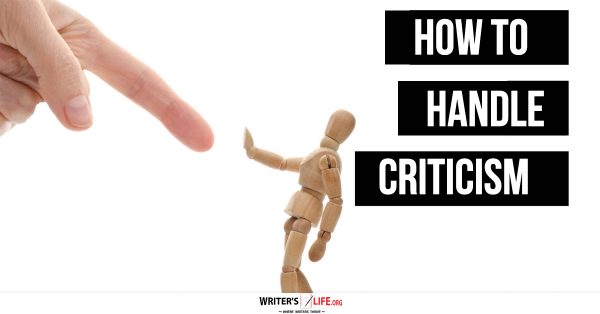- How To Tackle Jealousy In Creative Writing
- Common Submission Mistakes
- How To Stop Your Blog Becoming Boring
- The One Thing Every Successful Writer Has In Common
- How To Make Yourself Aware Of Publishing Scams
- Why Almost ALL Writers Make These Grammar Mistakes At Some Point
- 5 Tips For Authors On How To Deal With Rejection
- Top Mistakes to Avoid When Writing a Novel
- How to Avoid Common New Writer Mistakes
- 10 Mistakes New Fiction Writers Make
How To Handle Criticism

One of the hardest parts of being a writer is facing criticism of our work. It’s one of those quite odd things when you think about it. You would happily sit through a meal someone had slaved over for hours, not enjoying it but making all the right noises and congratulating the chef at the end. Or someone might ask you what you think of their outfit and you just don’t have the heart to tell them they look like they are supposed to be going to a fancy dress party.
In fact, in many other aspects of life people tend to tell white lies in order to save the feelings of others. Whether this is the right or wrong thing to do of course depends whether you believe in total brutal honesty or prefer to spare someone’s feelings even though it might lead them to looking like a bit of a fool - ignorance is bliss as they say after all!
When it comes to writing, however, because we offer our work up to total and complete strangers, they have no problem telling us exactly where we have gone wrong. I can’t help but wonder if they knew how much blood, sweat and tears had gone into our craft, whether they would actually look upon it with more sympathetic eyes?!
Of course, it is important to have our work criticised, it is important to get feedback from readers, from publishers, from teachers and fellow authors. If everyone tells us that we are amazing we’ll end up being akin to one of those poor children auditioning on the X Factor, blinking back the tears as everyone laughs and boos at them because they can’t understand it - mummy and daddy always told them they were exceptionally talented after all.
However, it’s hard to stop ourselves from taking criticism personally, and even the friendliest, gentlest suggestion to change or amend our work come sometimes feel like a deeply cruel and intentional stab in the heart.
‘How could you do this to me?’
We wail when a friend tactfully points out an inconsistency, a bad character name, or a missing comma in our novel. We fling ourselves on the bed and refuse to talk to them ever again.
In short, we can take things quite personally, and bit a little dramatic.
Let’s face it. You need a thick skin to be a writer. So let’s learn how to become better at taking criticism and more able to learn from it too.
Don’t react right away
If you receive criticism it may be hard for your initial reaction to be anything other than hurt or upset. So don’t react right away. Wait until you are able to feel more level headed and are willing to accept constructive criticism and listen to what other people have to say.
Listen
It’s so easy to get defensive as soon as someone starts to critique our work, but if we don’t give other people a chance to have their say and actually listen, we might never realise that they are in fact, probably just trying to help us. Accept that neither you nor your writing is going to be perfect, and everyone has different tastes and points of view, so be open to hearing them and then decide what you want to take and what you don’t. You are allowed to disagree after all!
Decide how important this person's opinion really is
Understand that some criticism is constructive and some is just plain rude. If the way that a review has been written is insulting and the reviewer can’t justify why he/she is saying these things then don’t get angry, just don’t let it bother you. You need to always weigh up how valuable someone’s opinion is to you. If it’s not, then it doesn’t matter in the first place.
Be brave
Don’t just have your work critiqued by loyal friends and members of your family who are too proud of you for even trying to write to say anything negative. Get out there and let strangers critique your work. It’s not fair to put the pressure on people we know to give us an unbiased view, so save your relationships and get strangers to do it. Not only will you receive more useful feedback, it will also matter less if you don’t agree with what they say.
Be grateful
If someone has taken the time to critique your work, try to be thankful. It takes concentration and effort to do so, and the more they have to say the more that perhaps they care.
Remember it happens to everyone
Even the most popular, famous and celebrated authors get negative reviews. Go on Amazon and read reviews of your favourite ever book or the most popular authors of all time. Just because someone doesn’t like your work it doesn’t mean that lots of people won’t think it’s amazing - so don’t be disheartened and keep that in mind!

Bethany Cadman -author of 'Doctor Vanilla's Sunflowers'


























